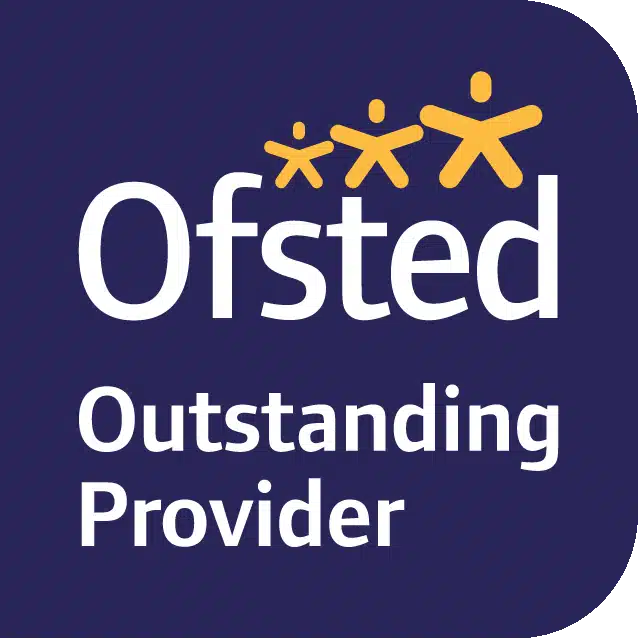The latest Fostering Network's State of the Nation report on foster care in England paints a worrying picture – and for many foster parents, it simply confirms what they already know.
Too many foster families are facing burnout. Too many children are being moved again and again. And too often, the support that’s promised arrives too late – or not at all.
Fostering is one of the most important roles in our society. But for it to work, foster parents need more than a warm heart and good intentions. They need training. They need support. And they need to know someone will pick up the phone when things get tough.
At Mosaic Foster Care, we’ve built our entire approach around the kind of fostering that leads to long-term, life-changing outcomes – for children and for the families who care for them. And the truth is, the current system isn't designed for that.
But we are.
In this blog our Registered Fostering Manager Greg De Smidt gives his response to the national picture – and calls out what fostering needs next.
The State of the Nation report doesn’t mince words: the fostering system is under strain and it is foster families and children who are bearing the brunt.
Some of the most concerning findings include:
It’s not enough to acknowledge these problems. The real question is: what can we do differently?
At Mosaic, we’ve spent the past decade building an approach that tackles these issues head-on. And while we can’t fix the national system on our own, we believe our model shows what is possible when you put relationships, therapeutic support and long-term thinking at the centre of fostering.
If fostering is going to succeed – not just for a few children, but consistently, across the board – then the system has to be built around what foster families actually need to thrive.
At Mosaic, we’ve never believed in ticking boxes or scraping by on the bare minimum. We believe foster parents and children deserve more – because that’s what it takes for placements to last, for relationships to deepen and for children to begin to heal from the trauma they have endured.
Here’s how we do it differently:
We specialise in long-term placements. That means we’re not in the business of rushed drop-offs and our model is set up to encourage stability, giving every foster parent the chance to build a relationship that goes the distance. That way the children in our care have a real chance to settle which avoids them from being moved from one home to the next because we know children recover better when they’re not constantly starting over.
Too many foster parents are told to “hang in there” while waiting weeks or even months for a child to access mental health support. By then, a crisis has often escalated – and the risk of breakdown rises with it. The report highlights that nearly half of foster carers who requested support with a child’s mental health had to wait more than two months for help – with many waiting longer or receiving no support at all.
Our SMILE therapeutic framework ensures foster parents and children have access to in-house therapy within hours when needed – not weeks down the line.
And it’s not just for the child. We support the whole family: foster parents, birth children, everyone under the same roof. Because when the whole household is supported, the placement is far more likely to succeed.
The State of the Nation report found 36 per cent of foster carers felt their concerns were not taken seriously by their fostering service. That simply isn’t acceptable. Support isn’t about a contact number. It’s about real people showing up when it matters with the professional skills to make a difference.
Whether it’s a social worker on the doorstep, a therapist offering daily check-ins, or a support worker stepping in to offer foster parents some breathing space – we surround our families with what they need, not what looks good on paper.
We’ve covered hospital shifts when no-one else would. We’ve provided therapy every day for a new foster parent who was anxious they weren’t getting it right. That’s what wraparound support should look like.
We don’t believe in slotting a child into any available room. Our matching process is thoughtful, staged and collaborative – more like what you’d expect in adoption than fostering.
We take time and won’t be pressured into rushing a decision. This stands in stark contrast to what many foster carers report nationally — rushed placements, minimal information and little say in decisions that deeply affect their families. We introduce families to children gradually. We involve everyone, including birth children, in the decision-making process. Because when everyone feels ready, the chances of success are so much higher. Because we’re focused on long-term fostering, taking this time to find the right fit is essential.
Fostering is often talked about as a vocation, a calling, a “labour of love.” And while the emotional rewards can be immense, the reality is this - fostering is messy and often very challenging. That’s why it requires a skilled and professional approach – because foster parents need resilience and time and they have a level of responsibility that most people would find overwhelming.
Yet across England, foster parents are still being asked to do this vital work without fair recompense. Some receive as little as £18 per week in fees. Others are only paid when they have a child in their care - leaving them financially exposed every time a placement ends. That’s not just unfair - it’s unsustainable and risks losing experienced foster parents from the system.
When there is such disparity in the remuneration packages from one agency or local authority to the next, it’s no wonder the system is struggling to keep experienced carers, let alone recruit new ones.
The report also revealed that nearly one in five foster carers are considering quitting in the next five years – and many cite a lack of financial recognition and escalating responsibilities as the final straw.

At Mosaic, we believe that if we’re asking foster parents to show up fully – emotionally, practically, therapeutically – then we must show up for them too. That starts with how we pay them.
We offer £600–£700+ per week as standard – with full payment for each additional child when appropriate.
We pay year-round for long-term placements – no sudden income gaps just because a placement ends unexpectedly.
We don’t deduct support costs – training, therapy, respite care and 24/7 access to professionals are all included.
And when placements do end, we offer a retainer of up to four weeks’ pay to keep foster parents financially secure while we find the right match again.
It’s not just about the money. We believe it’s about recognising fostering is a career, one that demands professionalism, skill and constant learning. And if the system wants foster carers to treat it that way, it has to step up.
As we approach Foster Care Fortnight in May, we’ll be adding our voice to the national conversation about what needs to change.
Because valuing foster parents means more than words of appreciation. It means fair pay, fair treatment and a system that supports them to keep doing this life-changing work – not one that pushes them to the brink.
The State of the Nation report doesn’t just highlight the cracks in the system. It highlights the cost of doing nothing. Every time a placement breaks down, it’s a child’s sense of safety that’s shattered. Every time a foster parent walks away, it’s a potential lifeline lost.
We can’t afford to keep papering over the gaps.
But there is another way – and at Mosaic, we’re living proof of what’s possible when you put the right things in place.
That’s not luck. That’s what happens when you build a service around stability, support and long-term thinking.
We’re not saying fostering is easy. It isn’t. But it should feel possible – and it should never feel like you’re doing it alone.
The State of the Nation report shows what happens when foster carers are left to cope alone. Our model is designed to make sure that never happens.
We believe in a future where foster families are properly supported, properly valued and proud to stay in fostering for the long haul.
If you’ve been thinking about fostering but feel unsure about whether it’s the right time – or whether you’ll get the support you need – we hear you. These concerns are real. And at Mosaic, we promise never to sugarcoat the challenges.
If you’d like to explore fostering with a team that takes the responsibility seriously while valuing your role as a professional, we’re here for that conversation.
Speak to a Mosaic foster parent today and find out how our model works and whether it’s a good fit for your family.
